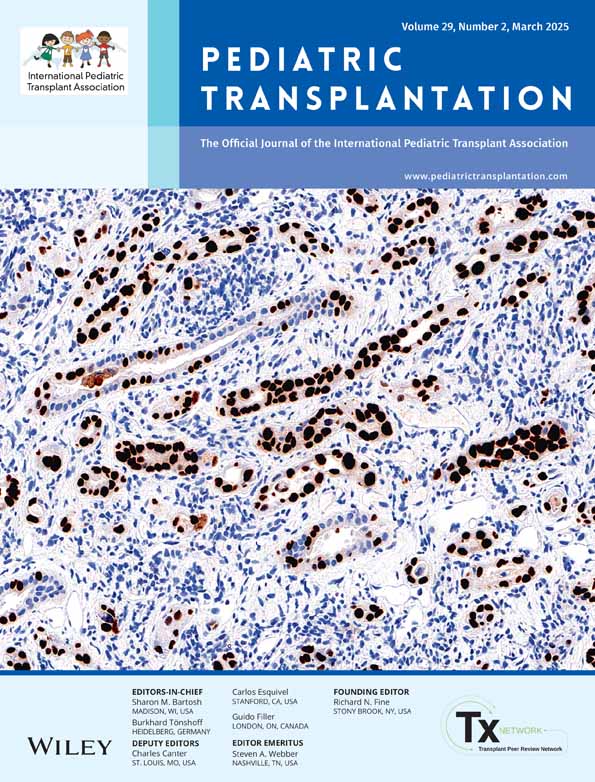Successful Liver Transplantation in a Pediatric Patient With Transaldolase Deficiency
Funding: The authors received no specific funding for this work.
ABSTRACT
Background
Transaldolase deficiency (TALDO) is a rare autosomal recessive disorder of the pentose phosphate pathway, presenting with end-stage liver disease, renal tubular dysfunction, and coagulopathies. Liver transplantation has emerged as a potential treatment for end-stage liver disease in TALDO patients, though clinical evidence is limited to seven reported cases.
Methods
We describe the case of a pediatric patient with TALDO who successfully underwent living donor liver transplantation. Clinical, preoperative, surgical, and postoperative data were reviewed and compared with previously reported cases.
Results
A 3-year 4-month-old girl with TALDO presented with end-stage liver disease, recurrent bleeding, and suspected hepatocellular carcinoma (HCC). She received a left lateral segment graft from her father. Postoperatively, coagulopathy and bleeding episodes resolved, with stable liver function at 1 year. Histopathology revealed cirrhosis without HCC. Complications included bile duct stenosis, successfully managed.
Conclusions
This case emphasizes liver transplantation as a lifesaving option for TALDO patients with end-stage liver disease. While short-term outcomes are promising, further studies are needed to evaluate long-term prognosis and growth outcomes. Reporting additional cases is vital to refine management strategies.
Conflicts of Interest
The authors declare no conflicts of interest.
Open Research
Data Availability Statement
The data that support the findings of this study are available from the corresponding author upon reasonable request.




